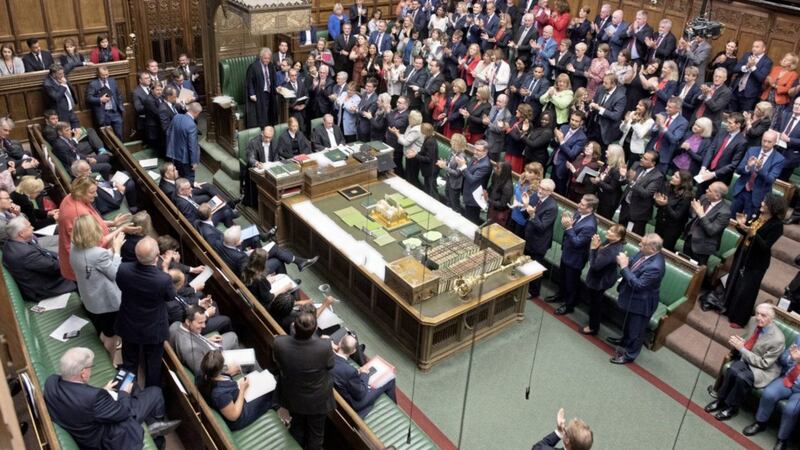The history of elections in the north suggests that they rarely involve normal politics.
(You have probably heard of normal politics. That's where parties offer social and economic policies and implement them if elected.) Instead, many political parties here tend to see elections as an opportunity to have their prejudices confirmed.
You are right to suggest that this is a sceptical view, but look at the historical evidence. Since the foundation of this state, we have had 12 elections to Stormont (plus 69 by-elections), six to the assembly, nine to the European Parliament, 26 to Westminster (plus 55 by-elections), two Northern Ireland-specific referendums, three UK-wide referendums, four special northern elections and, since 1973, twelve local government elections.
So we have had about 200 elections in 100 years, an average of two every year. Despite (or maybe because of) that, there are 370,000 people in poverty and 36,000 food-bank packages were distributed in the past year. Our society is bitterly sectarian and health and education are in crisis. That's enough to drive you past scepticism into political despair.
Ah but, you say, this coming election will be different. (Every election is always going to be different, but I will bear with you.) This one, you say, will determine whether an economic border will be on the border (yes, I know what you mean) or along the coast.
Sadly, that means another argument about the border (or two borders), so this election will be no different. But it could have been.
The election is about two forms of unionism. Unionist unionists (bear with me) believe in political union with Britain and nationalist unionists support political union with 26 other countries (but definitely not Britain). The arguments for both forms of unionism are obscure.
Unionists were offended recently when Leo Varadkar said that they would still have the Queen and red letter-boxes. It was an insensitive remark, but when unionist leaders complained that unionism was about so much more, none of them said what it was.
While political nationalism is supported by Irish culture, including music, dance, literature and language, political unionism identifies with what it calls British culture. But there is no specific British culture. There are wonderful English, Scottish and Welsh cultures, each with their own language, rich literature, music and dance.
So unionism appears to be simply a political loyalty to the Queen (but not necessarily her government).
Nationalism's support for political union with the EU is even more difficult to understand. The free movement of goods and people across Europe does not require the creation of a single European state, with its own flag, currency, parliament and anthem.
Ah but, you say, the EU brings Ireland loads of money. No, it does not. Ireland's annual contribution to the EU is soon expected to rise to €3 billion. (Like the 1801 Act of Union with Britain, the Irish people pay the bill.)
Meanwhile Ireland's not-so-sovereign government has little freedom to make its own monetary or economic policies. Irish economic independence has gone and Sinn Féin is the most pro-EU party in the Dáil. It is hard to understand why.
We could have a different election if both sides recognised that the welfare of ordinary people here is more important than blind adherence to political union. Special economic arrangements, allowing tariff-free trade between here and both the south and Britain, could have forged a united north, which has to be the first step to a united Ireland.
Instead we have bought into the Brexit debate with traditional sectarian enthusiasm. Brexit is merely a dispute between Britain and the German-dominated EU over how capitalism can best be advanced. Thousands from here died in a similar argument a century ago, but we are returning again today to our respective trenches.
Sadly, elections tend to bring out the worst in us, which probably explains why, over the past century, political progress here has been in inverse proportion to the number of elections. December's poll is unlikely to change that pattern.









